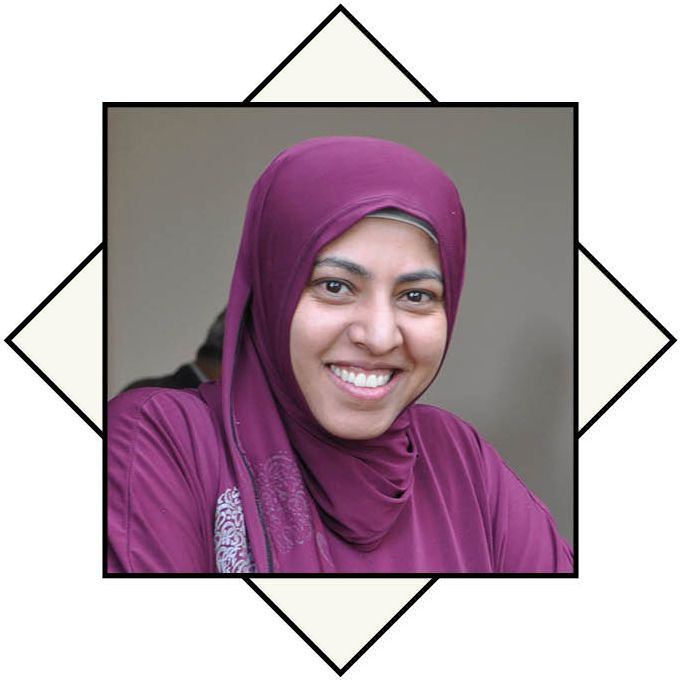Women and the Arab Spring: for a moment freedom came close
- Expat Lawyers

- Feb 2, 2021
- 4 min read
Emancipation: As if you see color for a while and then no longer. This is how women who played an important role in the Arab Spring describe the freedom they tasted, but which only partly remained. Nadia Al-Sakkaf (43) Yemeni journalist: "They spoke of a women's revolution"

Libyan women celebrate in Benghazi after Gaddafi's death, October 2011.
Photo Francois Mori/AP
"Imagine that you are color blind," explains Nadia Al-Sakkaf. “And then someone gives you special glasses, with which you can see them, all those beautiful colors. And then you have to take those glasses off again. ”
That's how, says the Yemeni journalist and scientist, that "feeling of freedom we had for a moment and then lost again."
At the time of the 2011 uprisings against autocratic leader Ali Abdullah Saleh, Al-Sakkaf was editor-in-chief of the independent English-language newspaper Yemen Times. She is the daughter of Abdulaziz Al-Sakkaf, the respected human rights activist, economist, journalist and founder of the Yemen Times, who was killed in a suspicious car accident in 1999. Led by Nadia, the Yemen Times reported on the uprisings against President Saleh, with an eye for detail: "So many women took part in the uprisings that it was called a women's revolution."

Encouraged by the uprising in Tunisia, Yemenis took to the streets in 2011 calling for reform. The government reacted violently, but the protest quickly swelled and Saleh's departure was demanded. Al-Sakkaf, who had studied computer science in India and worked as editor-in-chief for more women at the newspaper, was involved in the 2013 "national dialogue" that followed Saleh's departure. That dialogue, in which women from rival parties took part, led, among other things, to the decision for a 30 percent women's quota in the government. Al-Sakkaf herself was the first woman to be appointed as Minister of Information in 2014, but that lasted only four months. "A coup was staged by an alliance of the Houthis, the expelled Saleh and his Republican Guard."
She had to flee the country with her two children and now lives with her family in the United Kingdom, from where she speaks to NRC via Zoom. She cannot return to Yemen because she has been sentenced to death in absentia by the Houthis.
“The Yemenis are tired. They have lost all faith in the political parties ”, she says disappointed. "There is no social structure, it is everyone for himself," my family "," my tribe. " The fragmentation hampers a solution to the devastating civil war that broke out in 2014 and the continuing famine in the country. She finds it difficult to remain optimistic.
Al-Sakkaf compares Yemen to Libya. Every place has its own dynamics and leaders and she thinks the conflict can only be resolved locally. Women, meanwhile, pay the highest price when it comes to hardship.
“Many women have been sentenced to tough jobs because they have to earn a living for their families. There is no longer any social protection for them. Violence against women has increased by 64 percent, they are being raped and thrown in prison. That is unprecedented. ”
Despite the violence, the women's movements continue to work hard, says Al-Sakkaf. “They are female activists who arrange aid, release prisoners and organize prisoner exchange. For example, there is an organization of mothers of prisoners that works for the release of kidnapped men. ”
An agreement between supporters of President Hadi and southern separatists led to the formation of a new government in December. But to the indignation of Al-Sakkaf, women are not part of it. Women are also not involved in the negotiations between the Houthis and the Saudi-led coalition. While statistics show that when women are involved in peace negotiations, you get better results. Just look at countries like Liberia and Colombia, where that had good consequences. ”
At the same time, Al-Sakkaf is aware of the limited influence of politics. “In Yemen, women were given the right to vote at the same time as men and were well represented on councils and bodies. But that did not translate into a better social position. ”
In her new home country, Al-Sakkaf at the University of Reading researched the position of women in conservative Yemen and wrote a dissertation on it. She wondered how it is possible that women make it to the top, but that social deprivation remains, as does widespread illiteracy. According to her, political representation does not immediately lead to a cultural change, but the work of civil society organizations that fight for women's rights does. As far as she is concerned, politicians and women's organizations need to work together for real progress in society.
Recently, Al-Sakkaf, like other Yemeni women's activists abroad, was involved in an online protest campaign against the decision to exclude women from the government. Hashtag: no woman, no government.
“We have lost our political support because the international community is tired of Yemen and busy with its own problems. It is shameful that the women are being pushed aside. But we are here and we do a lot. ”
Source: NRC.nl, Hassnae Bouazza, 8 januari 2021



Comments